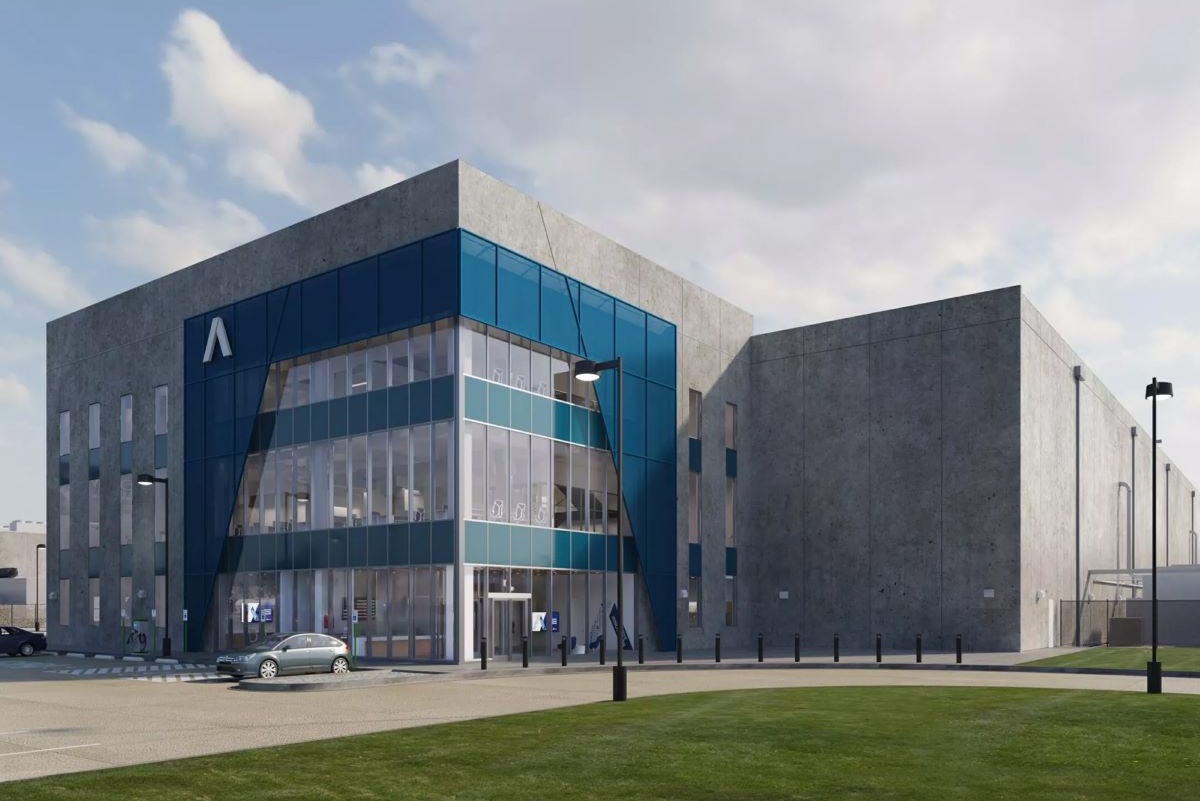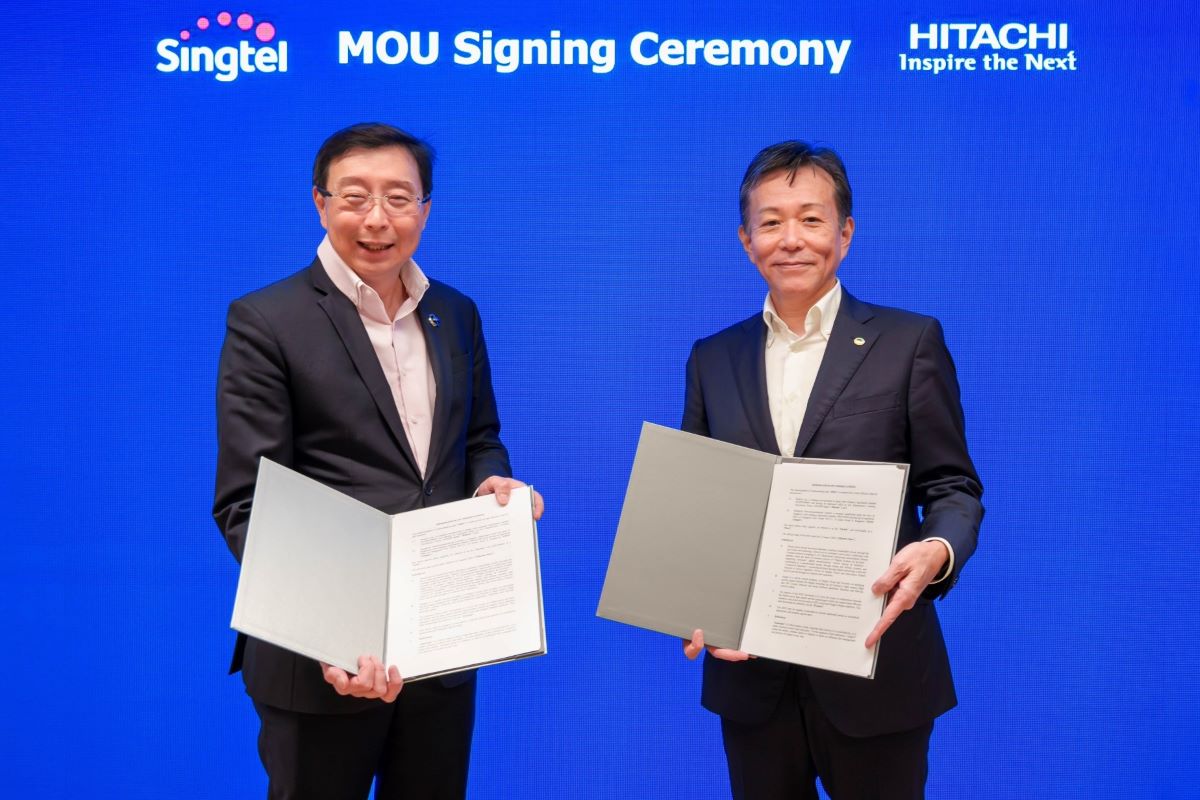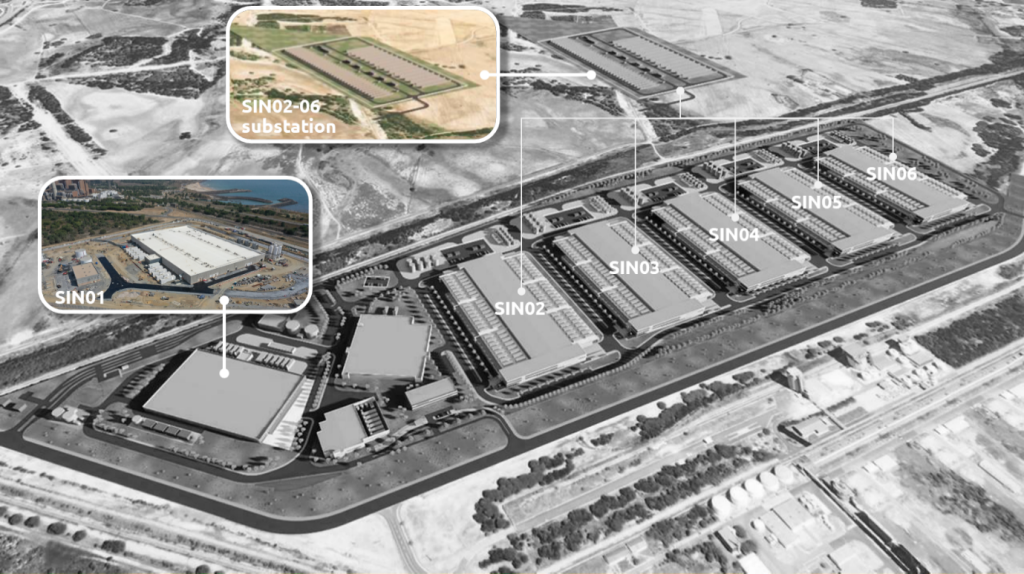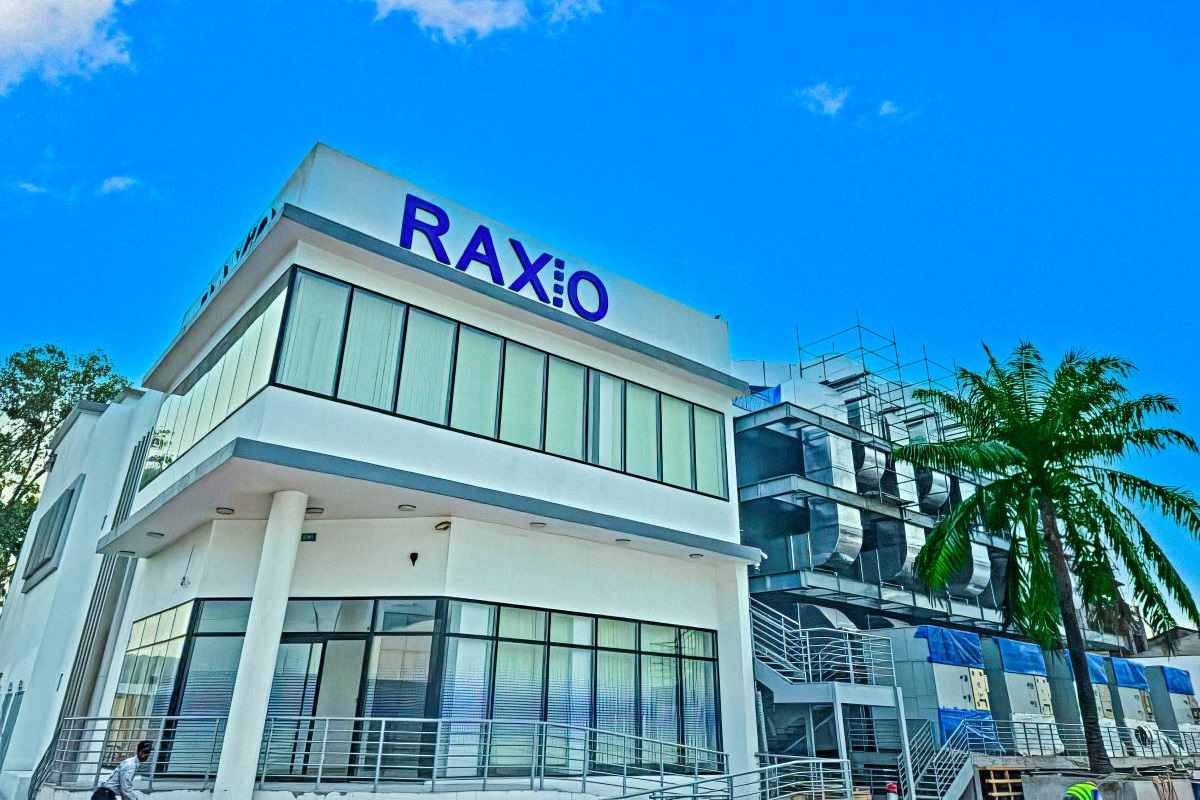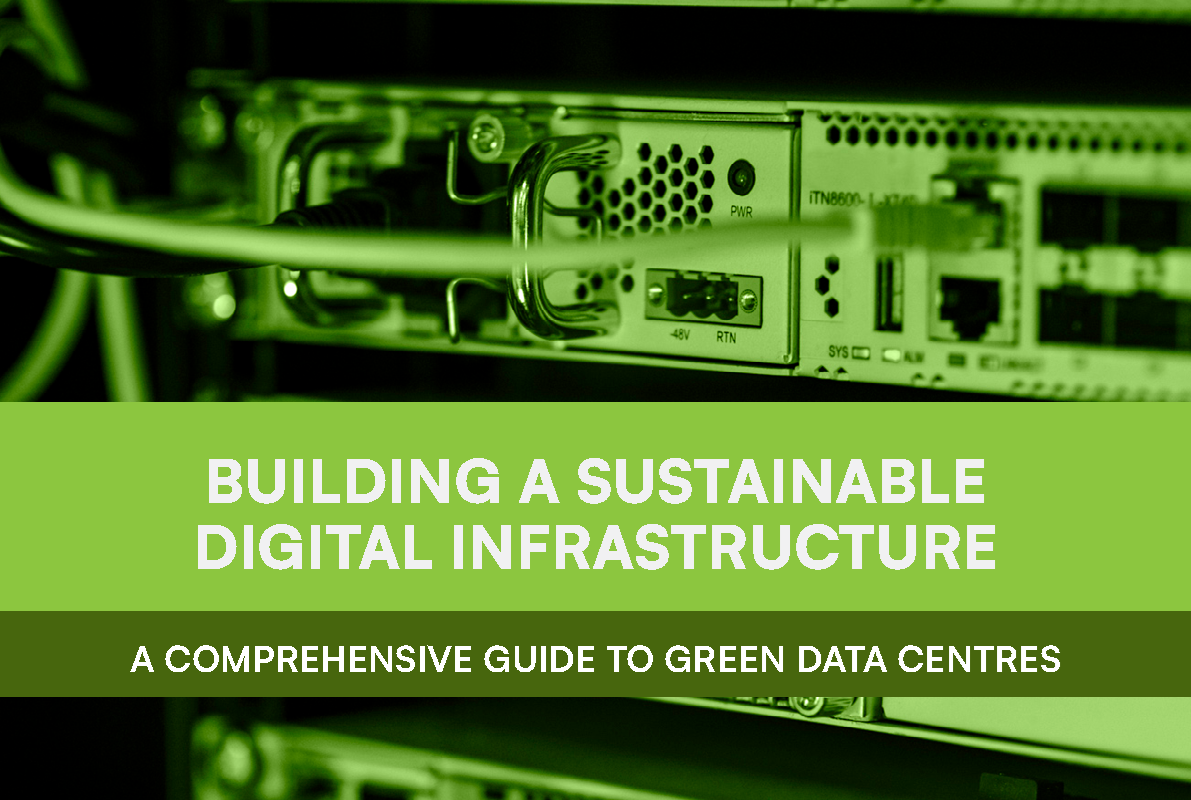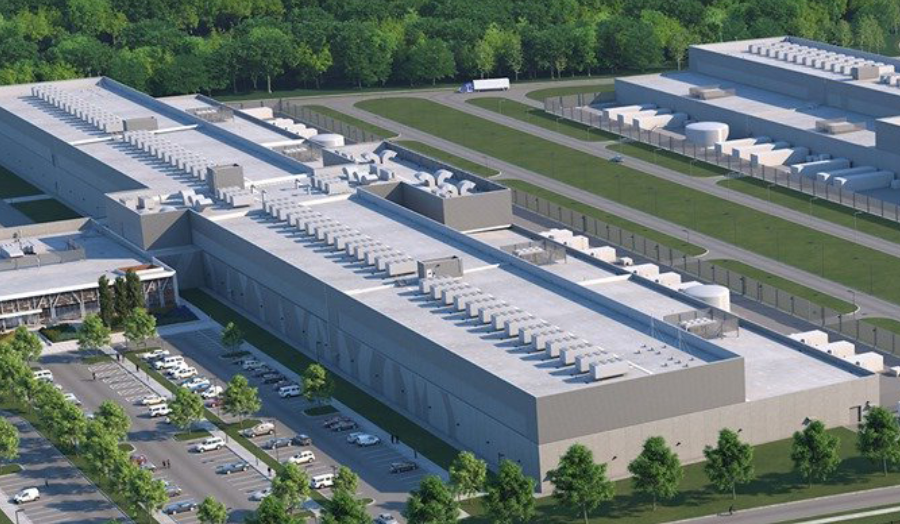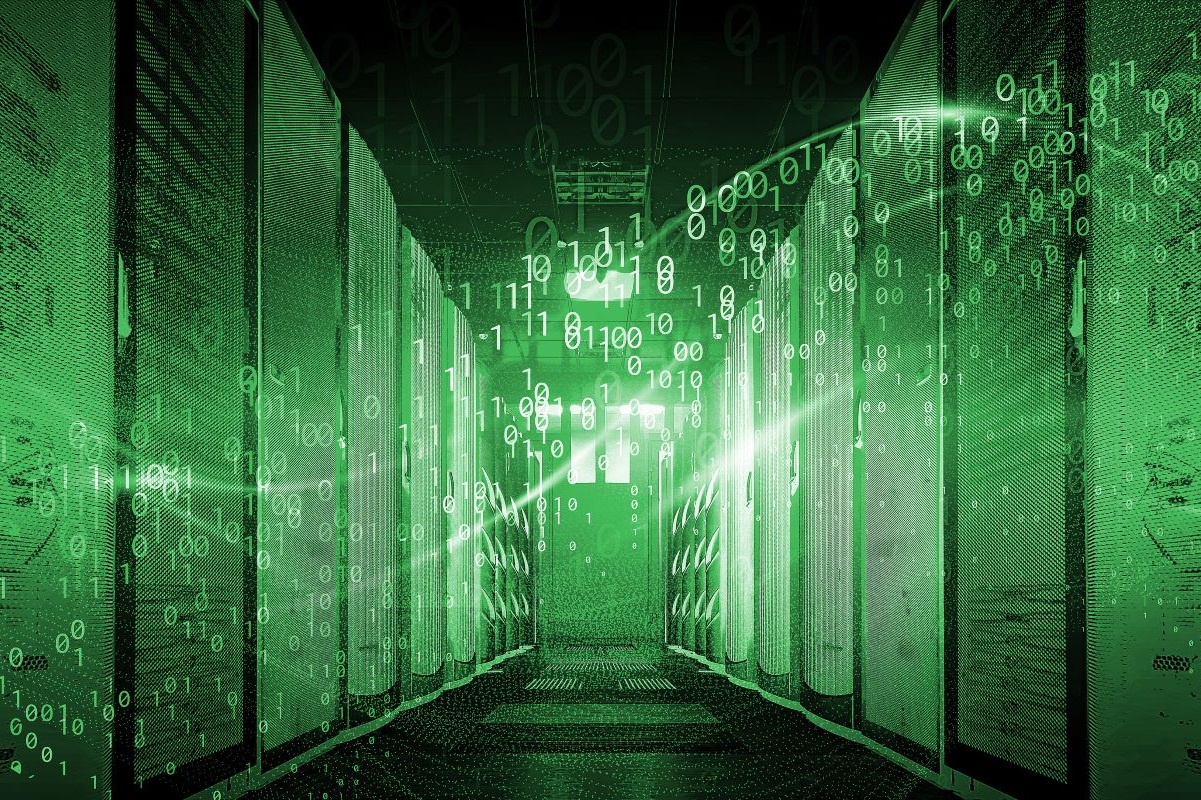Sustainable Infrastructure: Building Resilient, Low-Carbon Projects
Data Centres
Infrastructure Management for Modern Data Centres
News
Sustainable Infrastructure: Building Resilient, Low-Carbon Projects
Hyperview joins forces with Novem Digital
Hyperview, a cloud-based data centre infrastructure management (DCIM) platform, has announced a strategic partnership with Novem Digital, an innovative digital risk management and IoT company.
This collaboration aims to leverage the Hyperview platform to help property owners manage building and sustainability related risks using data insights to streamline operations, reduce operational costs, and enhance asset sustainability through predictive capabilities.
For insurers, this partnership provides transparency in risk assessment and enables accurate price alignment with risk profiles. The partnership also delivers a software platform that fosters collaborative customer relations, providing data that empowers informed insurance decisions for real estate and construction value outcomes, including better capital planning.
Hyperview and Novem are in the process of developing a software add-on named Property Risk Management by Novem. This add-on will enhance the existing Hyperview platform with a suite of features specifically designed for the built environment. Key functionalities will include risk management, capital planning, and predictive analytics.
"We're excited to partner with Novem Digital to enhance our SaaS offering," says Jad Jebara, President and CEO of Hyperview. "Our goal has always been to create a versatile digital infrastructure management platform. After successfully focusing on data centres, we're now ready to expand our proven technology to the broader real estate and insurance sectors."
Clint Undseth, CEO of Novem Digital, adds, "Our partnership with Hyperview is a major step in enhancing risk management for the built environment. This collaboration offers boards and executives critical insights into strategic and operational risks. Integrating Hyperview's platform with Novem’s expertise in harmonising real-time and historical building data is a game changer that enhances our customers' operations and asset value.”
Scott Ewing, Risk Consulting Head of the Americas for AXA XL, emphasises the increasing concerns surrounding natural catastrophes, cyber threats, and system failures in the insurance industry. He notes, “Incidents like electrical arc flashes and water damage are rising sharply. This innovative platform enhances risk assessment and helps our clients identify cost savings and sustainability opportunities. By leveraging data-driven insights, we can offer 24/7 virtual risk engineering services.”
The partnership represents a significant opportunity for the insurance industry to enhance collaboration with customers, moving away from the conventional 12-month transaction cycle and towards cultivating long-term relationships. Key benefits of the Property Risk Management add-on include:
Cost Reduction: By streamlining operations and utilising data insights, stakeholders can identify areas for cost savings, leading to more efficient asset management and reduced operational expenses.
Capital Planning: Leverage true predictive operational data and correlate to historical fault data to enable better capital planning and asset lifecycle management.
Informed Decision-Making: Access to predictive analytics empowers real estate and insurance professionals to make data-driven decisions, ensuring accurate alignment between pricing and risk profiles.
Enhanced Risk Management: The integration of Hyperview's platform with Novem's data analytics capabilities provides comprehensive risk assessment tools, improving transparency and accuracy in identifying property and climate related risks.
Improved Sustainability: The partnership fosters sustainability by offering tools and strategies that help enhance the environmental performance of buildings, promoting eco-friendly practices among property owners and insurers.
For more from Hyperview, click here.
Simon Rowley - 28 August 2024
Data Centres
News
Sustainable Infrastructure: Building Resilient, Low-Carbon Projects
Aligned Data Centers earns OCP certification
The Open Compute Project Foundation (OCP), a non-profit organisation offering hyperscale innovations, has announced Aligned Data Centers as the first data centre provider to earn OCP Ready for Hyperscale certification.
This recognition marks a significant milestone for the leading technology infrastructure company, with its ORD-02 facility in Chicagoland becoming the first certified data centre under this rigorous programme.
Aligned Data Centers, an OCP Community member, is renowned for its innovation, efficiency, scalability, and commitment to sustainability. The company’s ORD-02 facility earned near-optimum results across its OCP Ready site assessment, exceeding standards across all key areas ranging from site access and logistics, to structural, cooling, connectivity, service, efficiency, and certifications.
The data centre also recently received Green Globes for New Construction certification from the Green Building Initiative (GBI), earning a rating of three Green Globes for its design and construction, demonstrating outstanding success in resource efficiency, environmental impact reduction, and occupant well-being. Aligned’s standardised methodologies are utilised across its data centre portfolio.
Aligned Data Centers’ ORD-02 certification coincides with the launch of the new OCP Ready for Hyperscale programme from the OCP.
This certification was co-led by OCP Project Leads, Mark Dansie and Scott Sharp, working within the Data Centre Facilities Project at the OCP, and was created to focus on hyperscale requirements relating to logistics, site access, base building infrastructure, and more.
By adhering to a community-led checklist and completing the approval process, data centre operators who achieve OCP Ready for Hyperscale certification demonstrate their readiness to accommodate hyperscale wholesale deployments across a wide range of criteria.
A primary goal of the programme is to help hyperscalers identify data centre locations where they can reserve space, power and cooling earlier in the cycle (e.g. core and shell, ready for fit-out, build-in-progress, and capacity available). For data centre operators, this certification not only proves hyperscale capabilities, it also avoids unusable critical infrastructure due to basic building constraints and reduces redundancies in the requirements gathering phase of customer engagements.
"Aligned is proud to receive the first-ever OCP Ready for Hyperscale Certification for our ORD-02 data centre, validating our longstanding capabilities in hyperscale deployments. The programme streamlines the data centre selection process for hyperscale companies, reducing potential risk and time-to-market,” says Andrew Schaap, CEO of Aligned Data Centers.
“Aligned’s data centres prioritise scalability and flexibility to meet our customers’ specific IT infrastructure requirements. From our flexible, sustainable designs to our industry-leading, high-density cooling technologies – including air, liquid, and hybrid configurations – we unlock seamless scaling for hyperscale businesses, maximising efficiency and effectiveness.”
“The New OCP Ready for Hyperscale certification aims to standardise facility criteria that are compatible with all hyperscalers. Establishing a standard for base-building infrastructure reduces the time required to select a suitable data centre for deployments. The data centre industry is growing rapidly and ensuring new facilities are compatible with the customer requirements is extremely important,” says Scott Sharp, OCP Ready Facilities Program Co-Lead.
"Aligned Data Centers’ Chicago OCP Ready for Hyperscale certification marks a new era for identifying colocation data centres optimised for hyperscale wholesale deployments. This collaborative effort among hyperscalers within the OCP Community not only validates Aligned's readiness to accommodate hyperscale needs, but also underscores the impact that the OCP is having on the colocation industry to drive efficiency and innovation in the data centre sector," says Mark Dansie, OCP Ready Facilities Program Lead.
Aligned Data Center’s ORD-02 data centre is now listed on the OCP Marketplace.
For more from Aligned Data Centers, click here.
Simon Rowley - 28 August 2024
Colocation Strategies for Scalable Data Centre Operations
Cooling
Data Centre Operations: Optimising Infrastructure for Performance and Reliability
Data Centres
News
Sustainable Infrastructure: Building Resilient, Low-Carbon Projects
STT GDC and Phaidra to optimise data centre cooling with AI
ST Telemedia Global Data Centres (STT GDC), one of the world’s fastest-growing data centre colocation services providers, today announced its collaboration with Phaidra, a pioneer of using artificial intelligence (AI) to improve efficiency, stability, and sustainability, to pilot an AI-based autonomous control system for optimising data centre cooling in STT GDC’s facilities in Singapore.
Phaidra provides AI-powered control systems for data centres. Its autonomous AI agents build upon legacy control systems and support facility operations teams by analysing thousands of sensor trends in real-time to maximise energy efficiency, reliability, and cooling performance using specialised deep learning models.
Because this is a closed-loop solution, these AI agents continuously learn and adapt to changing facility conditions, such as load variations, due to higher density GPU deployments or external weather changes.
STT GDC’s commitment to be carbon neutral by 2030, along with its collaboration with Phaidra, aligns with Singapore’s vision of a greener future for the data centre industry. As the power needs of AI workloads continue to grow, data centre cooling and operational infrastructure must evolve to keep pace. This evolution is essential to more effectively and sustainably manage the heat generated by the high-performance computing requirements necessary to support accelerated computing workloads such as AI and beyond.
STT GDC will be the first operator to pilot Phaidra’s AI-powered control systems in Asia, setting a unique precedent by testing them in a hybrid cooling environment that is technically more challenging as compared to traditional air-cooled data centres. Selected STT GDC data centres offer a combination of both air-cooling and liquid-cooling solutions, supporting diverse computing workloads within the same facility. This pioneering effort underscores STT GDC’s commitment to innovative and sustainable data centre management. Based on existing site parameters, an initial estimate of 10% in cooling energy savings is anticipated. As the AI model is fed more operational data, energy savings are expected to increase from the 10% baseline to as high as 30%. This flagship pilot will serve as a model for possible subsequent deployments across STT GDC’s portfolio of data centres globally.
Daniel Pointon, Group Chief Technology Officer, ST Telemedia Global Data Centres, comments, “Combining our expertise in delivering AI-ready data centres across major economic hubs with Phaidra’s industry-leading know-how in using AI to optimise mission-critical control systems, we are leading the way in using AI to further drive sustainability within our data centres. Through this collaboration, we are not only seeing meaningful impact on our ongoing decarbonisation efforts, but also significant efficiency gains in data centre operations that already offer a hybrid of both air and liquid cooling. This pilot is testament to our commitment to drive sustainable innovation across our data centres.”
Jim Gao, CEO and Co-Founder of Phaidra, adds, “Phaidra is proud to work with a leading data centre services provider like STT GDC. Its culture of operational excellence, relentless improvement and innovation makes for a natural partnership. We look forward to driving the data centre industry forward together.”
AI is already making inroads towards transforming the global economy. Analysis from PWC indicates that AI could potentially contribute up to $15.7 trillion to the global economy by 2030, along with up to 26% boost in GDP for local economies from AI by the same year. While a sufficient level of AI-readiness is required to take advantage of these economic opportunities, there also must be considerations towards doing so in a sustainable manner.
As a leading data centre hub both regionally and internationally, Singapore is uniquely positioned to drive sustainable innovation in the data centre space. Recently, Singapore announced its Green Data Centre Roadmap for sustainable growth, with plans to accelerate data centres’ energy efficiency at both hardware and software levels, as well as to increase data centres’ use of green energy to expand capacity.
For more from STT GDC, click here.
Simon Rowley - 27 August 2024
Data Centres
News
Sustainable Infrastructure: Building Resilient, Low-Carbon Projects
Singtel and Hitachi to collaborate on next-generation data centres
Singtel and Hitachi have signed a Memorandum of Understanding (MOU) to collaborate on next-generation data centres and GPU Cloud in Japan - and potentially the wider Asia Pacific region - under the lead of Singtel's Digital InfraCo unit.
The strategic partnership will combine Singtel’s extensive data centre and connectivity expertise and technology platforms with Hitachi’s differentiating capability that enables end-to-end data centre integration including green power solutions, cooling systems, storage infrastructure and data management. Together, the companies intend to sustainably enhance data centre performance and capabilities, thereby accelerating AI adoption and digital transformation of enterprises.
Notably, the agreement expands on a partnership announced by the companies in June 2024 to trial and integrate Singtel’s Paragon, the all-in-one orchestration platform for 5G, edge computing and cloud, with Hitachi’s AI applications for Hitachi’s manufacturing operations as well as enterprise customers. Through Singtel’s Paragon platform and Hitachi’s deep AI expertise, both companies aim to address the complexities faced by customers when deploying AI capabilities.
With the rapidly growing demand for AI and cloud services, Japan has become one of the largest and fastest growing data centre markets in the Asia Pacific region. The market is expected to achieve a compound annual growth rate of 9.8% and reach $5 billion by 2028.
Bill Chang, CEO of Singtel’s Digital InfraCo, says, “Our strategic partnership with Hitachi, a leader in digital systems and services fields, opens up new opportunities in a strategically important and expanding Japanese market. Building a strong ecosystem of partners has always been a priority at Singtel to better serve our customers and broaden our global reach. We look forward to bringing our collective expertise, digital assets and solutions to help more enterprises innovate and transform their businesses and operations through the cloud and AI. As we scale our digital capabilities with our partners like Hitachi, we aim to become a leader in the Asia Pacific region.”
Singtel carved out Digital InfraCo in mid-2023 to serve as a catalyst for innovation and economic growth for Asia Pacific’s digital economies. Digital InfraCo’s portfolio includes Nxera, its regional data centre arm, subsea cable and satellite businesses, and the Paragon platform, which are all crucial to advancing AI in the region. Digital InfraCo plans to launch GPU-as-a-Service (GPUaaS) later this year to better support enterprise AI adoption.
Toshiaki Tokunaga, Executive Vice President and Executive Officer at Hitachi, adds, “Since its inception, Hitachi’s corporate philosophy has centred on addressing the challenges faced by customers and society. As generative AI continues to drive new innovations, the issues of environmental impact due to rising electricity demand is becoming more prominent. Striking a balance between these two factors is a significant mission for Hitachi’s Social Innovation Business.
“We are delighted to embark on this mission through our strategic alliance with Singtel. By combining Singtel's expertise in the development and operation of sustainable data centres with the comprehensive capabilities of the Hitachi Group, ranging from green power solutions to facility and data management, we aim to enable companies to utilise data centres in an intelligent and environmentally conscious manner; ultimately achieving continuous innovation while promoting sustainability.”
AI-driven data centre expansion is a major opportunity for Hitachi’s Social Innovation business expansion and its group businesses such as Hitachi Digital Services, Hitachi Energy and others, as the expansion calls for the successful integration of all areas where Hitachi uniquely excels: information technology, operational technology and products.
The key areas covered by the MOU are:
Explore next-generation data centre collaboration in Japan and Asia Pacific to address AI demand: Nxera and Hitachi will explore opportunities to develop data centres across Japan and the rest of the Asia Pacific region. With the continued growth in cloud and AI momentum, it is important to operate smart and environmentally sustainable data centres through high efficiency, high quality data centre management. Such an initiative would draw on Nxera’s expertise in data centre design, building and operation along with Hitachi’s expertise in the production and delivery of data-centre-focused equipment, next-generation energy solutions and advanced IT systems management that ensure stable operations within data centre environments.
Nxera is developing a platform of sustainable, hyper-connected AI-ready data centres in the region with a total capacity of more than 200MW in addition to 62MW of existing capacity in Singapore.
Combine Singtel's GPU platform with Hitachi's AI expertise to develop enterprise applications: Hitachi will explore using Singtel’s GPUaaS for its internal AI applications and workloads. This effort would allow Hitachi to verify complementary Singtel-based benefits that can enhance Hitachi’s high-performance machine learning, generative AI, and other digital technologies and solutions. Subsequently, it would provide an opportunity for both companies to define more power-efficient methodologies that could advance any enterprise’s sustainability goals.
Based on the results of Hitachi’s internal GPUaaS verification, the companies may also explore the co-creation of enterprise-grade applications that combine Hitachi's expertise, including its generative AI technologies and platform, with Singtel's GPU cloud and Paragon platform. The aim is to further reduce customer development and deployment times as well as management and deployment overhead for AI applications.
For more from Singtel, click here.
Simon Rowley - 27 August 2024
Data Centre Build News & Insights
Data Centre Projects: Infrastructure Builds, Innovations & Updates
Data Centres
News
Scalable Network Attached Solutions for Modern Infrastructure
Sustainable Infrastructure: Building Resilient, Low-Carbon Projects
SINES data centre partners with Siemens
Start Campus, a company focused on designing, building and operating a new generation of sustainable data centres, has announced a landmark order for transformers from Siemens Energy to power its SIN02-06 buildings - which it says is a key milestone in delivering its 1.2 GW SINES data centre campus in Portugal.
This high-demand, long-lead-time equipment - representing over €20m (£16.9m) of investment - will support the construction and fit-out of the second building of SINES DC (SIN02) and underpin its delivery timetable (it's due to be ready for service in 2026). SIN02 will provide its customers with access to up to 180 MW of IT capacity with reliability and redundancy at competitive power prices.
This order solidifies the partnership between Siemens Energy and Start Campus, which began with the deployment of market-leading power equipment for SIN01. It also underscores the shared commitment to driving innovation and ensuring the delivery of reliable, sustainable energy solutions in the data centre industry.
Rob Dunn, Chief Executive Officer of Start Campus, says, "Placing this order with Siemens Energy highlights our unwavering commitment to meet the growing demands of our customers and deliver on our promises while setting new industry standards. We deeply value Siemens Energy’s support in powering SIN01 and are pleased to strengthen this successful partnership as we advance the campus. Driving the data centre industry forward requires trusted, committed partners like Siemens Energy, and together, we're making it happen."
Mark Pilling, Vice President Grid Solutions for Europe and Africa at Siemens Energy, adds, “Data centres power our digital world, and as demand for data and electricity grows, stable access to electricity is crucial. Start Campus’ investment in sustainability is a vital step towards a greener, more connected future. Together with Start Campus, we are committed to advancing the development of critical digital infrastructure that meets the evolving needs of the data centre industry and sets new benchmarks at large scale.”
In addition to this significant development for SIN02-06, SIN01 is set to be operational by Q4 2024 with an initial 14 MW of IT capacity. In direct response to the requirements of its customers and, through the use of liquid cooling technologies, its capacity is being expanded to 26 MW.
For more from Start Campus, click here.
Simon Rowley - 23 August 2024
Colocation Strategies for Scalable Data Centre Operations
Data Centre Operations: Optimising Infrastructure for Performance and Reliability
Data Centres
News
Sustainable Infrastructure: Building Resilient, Low-Carbon Projects
DRC inaugurates Raxio data centre
In a landmark move reinforcing the Democratic Republic of the Congo’s (DRC) burgeoning role in Africa's digital transformation, Raxio Group today inaugurated its state-of-the-art data centre in Kinshasa, marking the country’s largest data centre, with Tier III accreditation by international industry body, the Uptime Institute.
Known as Raxio DRC1, the cutting-edge facility is backed by a $30 million investment, and represents a pivotal milestone in the nation’s Plan National du Numérique to drive digital inclusion, foster private sector growth, and transform public services through digitalisation.
Located in Limete in the southeast of Kinshasa, the two-storey Raxio data centre spans 1,542 square metres. Its modern design can house up to 400 racks and can reliably deliver 1.5MW of IT power to customer equipment. The 24/7 'always on' facility is ideally located along key fibre routes, delivering best-in-class colocation and connectivity services. Multiple paths for power and cooling systems underpin the centre’s Tier III certification, while the usage of cutting edge components guarantee unmatched levels of efficiency and a strong commitment to sustainability principles.
The project was completed in record time since construction started in early 2023, which is a testament to Raxio’s proven track record of designing and constructing data centre facilities in Africa, and the support of government authorities in fast-tracking priority national projects.
“The inauguration of our Kinshasa data centre marks a significant achievement for Raxio and a pivotal moment for the DRC's digital landscape,” says Robert Mullins, CEO of Raxio Group. “DRC is one of Africa’s largest and fastest-growing markets with an existing latent demand for digital products and services that is forecast to soar in the coming years. With this facility, we are providing the critical infrastructure essential to supporting the digital economy and enhancing connectivity – and we expect to expand our presence in DRC through additional capacity and new facilities in years to come. Our investment reflects unwavering confidence in the DRC's immense potential and our commitment to sustainable digital development across Africa.”
With the widest footprint of any data centre provider on the continent, Raxio's strategy is to address the significant demand for high-quality data infrastructure across Africa. Since opening its first data centre in Uganda in 2021, Raxio has expanded this year into Ethiopia and Mozambique. The launch of the DRC data centre marks the opening of Raxio’s fourth facility this year, with 1.5MW being the group’s largest day one capacity to date.
Raxio continues to see strong momentum behind the roll-out of its pan-African digital backbone. Appetite for data centre capacity is growing not just amongst local enterprises and the public sector, but increasingly from some of the world’s largest hyperscale cloud service providers, content delivery networks and mobile network operators as they strengthen their networks and market presence on the continent.
The DRC launch aligns with the government's Plan National du Numerique to make expansive digitalisation a catalyst for economic growth, competitiveness and social inclusion, while enabling a range of public and private sector cloud-based digital services. The Provision of data centres is one of the key pillars of the government plan, improving the digital landscape through reduced latency for real-time applications and providing a reliable backbone for mobile and internet connectivity.
“Closing sub-Saharan Africa’s connectivity gap is no longer a pipe dream – it is happening now and we are extremely proud to be among the key enablers that are driving digital inclusion,” says Yannick Sukakumu, General Manager, Raxio DRC. “The commitment and pragmatism of the government has been a key enabling factor in spurring our project from inception to completion in record time and stands as an inspiration for the wider region in grasping this incredible opportunity for a broad-based digital economy expansion. We are looking forward to welcoming customers into an international-standard data centre environment.”
For more from Raxio, click here.
Simon Rowley - 22 August 2024
Data Centre Security: Protecting Infrastructure from Physical and Cyber Threats
Data Centres
News
Security Risk Management for Data Centre Infrastructure
Sustainable Infrastructure: Building Resilient, Low-Carbon Projects
JLL boosts data centres team with key hire
JLL, a global commercial real estate and investment management company, has appointed Mark Harper as a Technical Consulting Specialist for its data centre practice in EMEA. In this role, Mark will assist clients in meeting their technical needs within the entire JLL data centre division.
Mark brings 27 years of industry experience and comprehensive knowledge of the operational landscape with him to JLL, where he will provide guidance in technical due diligence, drive operational sustainability, advise clients on technical risk management and legacy retrofit projects, explore technology innovation opportunities and promote operational excellence. Based in London, Mark reports to Catriona Shearer, JLL Global Consulting Lead for EMEA Data Centre Solutions.
“We are excited to welcome Mark to JLL,” Catriona says. “He’s held numerous leadership, client management and project roles throughout his impressive career. His deep understanding of system design, modifications and asset management, in addition to his expertise with operational standards and best practice, will be an asset to our clients.”
Mark was most recently the Technical Operations Manager for the service provider at the prestigious Telehouse London site. Prior to that role, he held several technical and leadership positions with SPIE UK, AMEC Facilities and Matthew Hall. He was responsible for the implementation of the UK’s largest data centre and oversaw the site evolution from one data centre to five across his tenure.
Data centre demand has skyrocketed in recent years. JLL Research recently published a report on the growth trajectory for edge data centres, predicting that edge IT infrastructure and data centres will become a $317 billion market globally by 2026, representing a 107% increase since 2020. The demand for colocation, hyperscale, edge and enterprise data centres, fuelled in part by the rise of AI and machine learning, is transforming the sector and ushering in a new wave of innovation to better meet the demand and help operators reach sustainability goals.
“I thrive on driving innovation and change and, with that, consistently keeping data centres at the forefront of technology advancements,” Mark Harper comments. “I’m thrilled to join JLL and further influence and shape the direction of data centres using industry-leading innovations.”
Simon Rowley - 22 August 2024
Data Centre Build News & Insights
Data Centres
News
Renewables and Energy: Infrastructure Builds Driving Sustainable Power
Sustainable Infrastructure: Building Resilient, Low-Carbon Projects
Salumanus unveils white paper on green data centres
To encourage businesses to take practical steps to reduce emissions from data centres, which contribute 1-3% of the world’s total energy usage, optical solutions specialist, Salumanus, has released a white paper titled Building a sustainable digital infrastructure: A comprehensive guide to green data centres.
This guide offers in-depth insights into the evolution and implementation of green data centres, providing essential guidance for businesses and organisations aiming to reduce their environmental footprint.
In today's hyper-connected world, data centres are the backbone of our digital economy, supporting everything from cloud computing and artificial intelligence (AI) to online retail and streaming services. As the demand for digital services continues to grow exponentially, so does the energy consumption of data centres, which are now some of the largest consumers of electricity globally.
According to the International Energy Agency, data centres are responsible for approximately 90 billion kWh of electricity annually, producing around 330 million tonnes of CO2 emissions.
Salumanus’ white paper delves into the environmental challenges posed by traditional data centres, particularly their significant energy demands and the extensive cooling systems required to maintain optimal operating temperatures. It highlights that cooling systems alone can consume up to 40% of a facility’s total energy, exacerbating the carbon footprint of data centres.
“Salumanus is committed to advancing digital infrastructure in a way that supports both technological progress and environmental stewardship,” says Marcin Bala, CEO of Salumanus. “Our white paper is a vital resource for businesses and organisations looking to reduce their environmental footprint, while maintaining high levels of performance and efficiency in their data centres.”
The white paper outlines the concept of green data centres, which represent a paradigm shift towards more sustainable and energy-efficient practices. These facilities incorporate cutting-edge technologies such as virtualisation, which allows multiple virtual machines to run on a single physical server, significantly reducing the number of servers needed and consequently lowering power consumption.
Liquid cooling systems, another innovative solution discussed, offer superior heat dissipation compared with traditional air cooling, reducing the energy required for cooling by up to 27%.
A key highlight of the white paper is the discussion on universal optical transceivers, such as the Smart Recode Device (SRD) offered by Salumanus. The SRD standardises optical transceivers across different networking equipment, streamlining inventory management, reducing electronic waste, and enhancing operational efficiency within data centres. This technology not only simplifies maintenance and upgrades, but also features advanced energy-saving modes that contribute to the overall sustainability of data centres.
“The SRD exemplifies our commitment to advancing sustainable practices in data centre management,” Marcin continues. “By enabling the use of a single optical transceiver across multiple platforms, the SRD addresses the inefficiencies that have long plagued data centres. This innovation streamlines operations and plays a crucial role in reducing electronic waste and energy consumption.”
Additionally, the white paper explores the role of edge computing in minimising energy consumption by processing data closer to the source, thereby reducing the need for data to travel long distances. AI and machine learning technologies are examined for their ability to optimise workloads and improve energy efficiency in real-time.
The white paper is now available for download on the Salumanus website by clicking here.
For more from Salumanus, click here.
Simon Rowley - 20 August 2024
Data Centres
News
Sustainable Infrastructure: Building Resilient, Low-Carbon Projects
AVAIO announces partnership with renewable energy developer
AVAIO Digital Partners (ADP), a data centre business developing sustainable hyperscale data centres in North America and Europe, has announced a partnership with one of Quebec's leading renewable energy developers, Sunbird Energy. The partnership integrates renewable energy capabilities with ADP’s large scale development project in Gatineau.
As a result of the partnership, ADP will work with Sunbird to bring innovative power, transmission, and heat reuse solutions for its planned sustainable data centre development in the Province. ADP’s development in Gatineau is currently underway and intended to serve the rapidly growing cloud services and AI demand in Quebec, Greater Outaouais, and the National Capital Region.
“As a leader in the development of new sustainable energy solutions in Quebec, Sunbird is an ideal partner for ADP’s Gatineau project,” says AVAIO Partner, Anthony Gordon. “Quebec is an ideal proving ground for new renewable power and digital infrastructure integration strategies, and Sunbird is the right local partner to bring this project forward and make the Outaouais Region a new zone of digital and sustainable energy innovation.
“We have been waiting for two years for Hydro Quebec to provide us a contract for connecting to the grid, which is the last element needed before we can move forward with this innovative project. We hope Hydro Quebec and the Quebec government will see the promise this approach offers for supporting Quebec’s technology, industrial, and environmental goals.”
Simon Lafleur, Founder and President of Sunbird Energy, adds, “Sunbird Energy is proud to partner with AVAIO Digital Partners on this major digital infrastructure project. This partnership highlights our commitment to renewable energy and underscores our dedication to supporting the energy transition and promoting sustainable economic development.
“By deploying our solar and energy storage solution, connected to our advanced energy management software, we are providing our partner the tools they need to build a data centre that will preserve the integrity of Hydro-Québec's grid in the region, while setting a new standard for diligent data centres in the province. We're pleased to see AVAIO adopt Sunbird's new vision of energy consumption.”
Simon Rowley - 20 August 2024
Exclusive
Features
News
Sustainable Infrastructure: Building Resilient, Low-Carbon Projects
Feature - Data centre growth requires sustainable thinking
The development of AI is having a huge impact on almost every industry, and none more so than within data centres. It is expected that global data centre electricity demand will have doubled by 2026 due to the growth in AI. So, how do we ensure our data centres are operating as efficiently as possible? Russell Dailey, Global Business Development Manager, Data Centres at Distech Controls, explains.
We are generating more and more data in all aspects of lives, whether that’s through our business operations, the use of social media and even our shopping habits with the growth of e-commerce.
Our new dependence on web services and digital infrastructure requires a greater number of data centres, and we need them to operate more reliably and efficiently than ever before.
According to the International Energy Agency (IEA), in 2022, data centres used 460 terawatt hours of electricity, and it expects this figure to double in just four years. Data centres could be using a total of 1,000 terawatt hours annually by 2026.
This demand for electricity has a lot to do with the growth in AI technology. In a similar way to how the growth of e-commerce drove uptake for large industrial warehouses, AI is expected to more than double the need for global data centre storage capacity by 2027, according to JLL’s Data Centres 2024 Global Outlook.
As data centres contribute substantially to global electricity consumption, more facilities are seeking to adopt enhanced sustainability strategies. To achieve net zero emissions targets or other environmental objectives, data centre companies must invest heavily in energy efficiency measures. A Building Management System (BMS) can form the cornerstone of these efforts, providing insights into energy usage and helping to reduce unnecessary energy waste with enhanced operational efficiency.
Data centres are unique buildings, and a BMS within this environment requires careful planning and implementation.
Let’s be open
In the past, building systems have traditionally been proprietary and not flexible like open systems. Proprietary systems speak different languages, resulting in incomplete visibility, data, and reliability, and leave you tied to one, often expensive, service provider.
However, that is changing, and open systems are becoming ever more popular in commercial buildings and have numerous benefits for data centres.Systems offer monitoring and analytics at the local controller, reducing network complexity, increasing redundancy and security.
With Distech Controls, operators can keep their facility at optimal performance through a proven IP-based solution that creates a more secure and flexible network enabling easy integration of systems with a wide range of IT and business applications. Distech Controls’ commitment to open protocols and industry IT standards, combined with its best-in-breed technology, creates a sustainable foundation that supports and evolves with a building system’s life cycle.
Efficient and forward thinking
Open systems also have an effect on the sustainability of a data centre. They can bring everything together in a cohesive and centralized fashion allowing users to visualise information, assess relationships, establish benchmarks and then optimise energy efficiency accordingly.
Distech Controls’ solutions meet even the most demanding data centre control requirements (even remotely) via fully programmable controls and advanced graphical configuration capabilities. They leverage technology such as RESTful API, BACnet IP, connected controllers, and unified systems, to help future-ready your data centre as technology continues to advance.
The importance of security
The smarter buildings become, the greater the importance of cyber security. There are some fundamentals that building owners and system integrators need to consider when it comes to the security of their BMS.
As a starting point, the devices or operational technology (OT) should be on a different network to the IT system as they have separate security requirements and various people need to access them. As an example, contractors overseeing BMS devices do not need access to HR information. Each device should be locked down securely so they can only communicate in the way that is required. There should be no unnecessary inbound or outbound traffic from the devices. This links neatly to monitoring. It is vital to monitor the devices after installation and commissioning to ensure there is no untoward traffic to the devices that could threaten a buildings or company’s security.
Some manufacturers, such as, Distech Controls, are ensuring its products are secure straight out of the box. Security features are built directly into hardware and software like TLS 256- bit encryption, built-in HTTPS server and HTTPS certificates. For instance, the ECLYPSE APEX incorporates a secure boot and additional physical security measures to help overcome today’s security challenges.
Distech Controls’ solutions are specified by leading web service providers because of their high resiliency, flat IP system architecture and open protocol support. They also incorporate the right technologies to comply with the most stringent cybersecurity standards as well as RESTful API / MQTT for OT/IT interoperability purposes. These attributes allow data centre operators, integrators, and contractors the freedom to choose the best-in-class solutions for their data centre’s infrastructure management services. These advanced features enable significant operational efficiency improvements and energy cost reductions for data centre owners and managers.
AI technology is already having a revolutionary effect in business and our personal lives. At Distech Controls, we are utilising its capabilities, and it is clear that this revolution is going to require more data centres. We need to look at ways we can make these specialist buildings as efficient as possible. Utilising an intelligent and open BMS is essential.
Simon Rowley - 19 August 2024

Head office & Accounts:
Suite 14, 6-8 Revenge Road, Lordswood
Kent ME5 8UD
T: +44 (0)1634 673163
F: +44 (0)1634 673173

